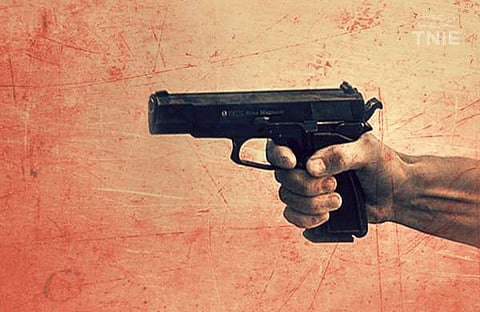

BENGALURU: The word ‘underworld’ was not really familiar even to many police officers in Bengaluru city until the movie ‘The Godfather’, based on Mario Puzo’s novel, was released in 1972.
But beneath Bengaluru’s sublime climate and the tag of pensioners’ paradise, two gangsters were getting ready to rule the city’s ‘underworld’ with ruthlessness at the same time.
Bloody streetside battles and movie-style police crackdowns became a reality for citizens with the arrival of MP Jayaraj and Kotwal Ramachandra, who went on to become the undisputed lords of Bengaluru’s underworld.
But much before the duo – in 1960s – it was Munegowda’s name that was doing the rounds in police circles as a ‘rowdy’. Collecting hafta from businessmen and attacking opponents mercilessly was the city’s first ‘don’ style of rowdyism. Not much is known about his ‘empire’ as his stint was cut short after he was murdered.
After Munegowda’s death, Jayaraj and Ramachandra entered the scene and with this, started a dark chapter of Bengaluru’s history.
Jayaraj and Ramachandra, who were once together, split to gain supremacy over each other. Ramachandra, a sailor in the Indian Navy, ran away from his unit and was declared a deserter.
ALSO READ | The evolved rowdy of Karnataka
But Jayaraj was a rowdy right from his teenage days. “They were real bad men. They targeted couples sitting in parks and attacked them. They raped girls in front of their boyfriends and robbed them. Naturally, most of the victims did not approach the police.
They made money collecting hafta from those who ran prostitution rings and cabaret bars in the city. They targeted pawnbrokers who received stolen jewellery and extorted them. It was all about money and supremacy for them,” retired ACP BB Ashok Kumar says.
Explaining how dreadful Jayaraj was, Kumar narrated, “In police stations those days, there were work rooms where criminals were tortured. When we raided Jayaraj’s house in Wilson Garden once, we found a similar set-up in his garage in the backyard. He used to subject his enemies to third-degree treatment there. In another instance, a police inspector of Wilson Garden was trying to trace Jayaraj. One morning, as soon as the inspector entered his chamber, Jayaraj barged into the station and kept a machete on the inspector’s neck and warned him to stay away from him.”
Those days, it appeared that nothing could stop Jayaraj. As an act to establish his supremacy, Jayaraj entered a court hall with his men and hacked to death one Gopi, who was giving evidence in a case of assault against him, in front of the judge and escaped.
The judge became the complainant in the case, in which Jayaraj was convicted and given a 10-year jail term. And as testimony to the phrase ‘if you live by the sword, you will die by the sword’, Jayaraj was ambushed by a gang near Lalbagh when he was out on parole in November 1990.
He was murdered in the shootout and all fingers pointed towards Muthappa Rai. The case fell flat in court owing to lack of evidence.
Ramachandra was murdered at a farmhouse in Tumakuru district in 1985. He was as dangerous as Jayaraj -- he hadn’t spared even a CM’s daughter and threatened her after her father had ordered his arrest, says a cop.
After Jayaraj and Ramachandra, it was only Muthappa Rai and Deadly Soma, who turned out to be a nightmare for the police.
Having contacts with the gangster Dawood Ibrahim, and others in Mumbai, Rai emerged a don in Karnataka. Rai allegedly operated extortion rackets, helped realtors take possession of land and collected hafta from business houses in Karnataka. In 2002, Rai was deported to India from the UAE.
He was acquitted owing to lack of evidence. Born in Puttur, Rai is now a reformed man and a businessman-philanthropist.
Soma, who climbed up the underworld ladder by committing 4-5 murders in a short span of time, was killed in a police encounter in 1994. Besides Rai, Ravi Pujari also made it big in the underworld. Pujari’s name itself caused palpitations among rich industrialists as he used to make extortion calls for one thing or other.
As the city grew, the ‘dons’ too graduated -- from knives and machetes to guns.
Effect of real estate boom
While rowdyism meant extorting money and gang wars to gain supremacy before 2000, the real estate boom later changed the dynamics. All ‘established’ gangsters sat at home and started settling land disputes quietly. Their names have stopped figuring in new cases.
“Now, there are frequent incidents of firing by police and it acts as a deterrent. Like earlier, there is no organised rowdyism, which is very good. On the flipside, there are more rowdies in each area, which is a disturbing trend,” said an IPS officer.